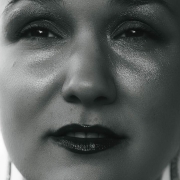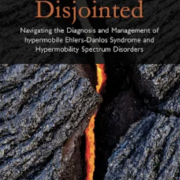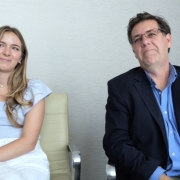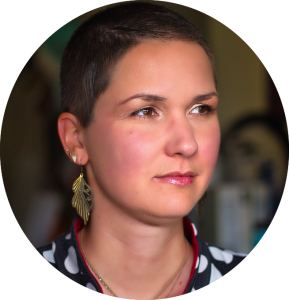Why I have changed my opinion about therapy as a chronically ill person
Only two years ago, I would have never considered therapy. Well, I guess life changes, and even my stubborn self can change her mind. Up until today, I have a bit of a love-hate relationship with therapy, but I feel it changed my life for the better, and I don’t only see my therapist when I feel unwell. I see her regularly, just to talk. I learned therapy isn’t something that’s only for people in acute distress; it’s beneficial for everyone, and here is why.
“Huh? You don’t have a therapist? Why?”
When I moved to San Francisco and got involved with some really lovely people from the LGBTQ community, one of the first conversations I had with my new friends was about therapy. I had been facing a minor challenge – I am chronically ill, I am used to living with constant problems, so this wasn’t anything special or new to me – and I talked to them about it. I shared that my life was basically a sequence of recurring ‘shit happens’ events, but I was simply dealing with those myself. Why not, right? They were puzzled why I wouldn’t have professional support to make things easier for me. My PCP asked me the same; and a few other people I met, too. Many of them simply saw a therapist to talk; their therapist was like a life coach, helping them make good decisions and not even feel stressed out about a challenge. They saw their mental health professional to avoid mental health crises. An interesting approach I have never considered. But it makes sense, doesn’t it?
“Are you having a mental breakdown?”
My family, on the other hand, wasn’t quite in the same place. My mom’s first question when I told her I was seeing a therapist and that she was helping me a lot was: “Are you having a mental breakdown?” No, I did not. Why would she think that? Instead of being happy that I am taking care of my mental health to avoid any breakdown, she was worried about the opposite. In her world – and I met many people that feel the same way – you only see a therapist if there is something seriously wrong with you. Especially where I grew up, people don’t share their problems; they don’t ask for support; they deal with whatever challenge alone, because asking for help is still considered ‘showing weakness,’ and that’s not something you are supposed to do. On top of it, mental health conditions are still highly stigmatized.
Chronic physical illness and mental health
On top of the typical misconceptions the public has about mental health conditions, I had my deep personal bias towards therapy because during my way too long journey of receiving my Ehlers-Danlos syndrome diagnosis, I got many misdiagnoses along the way, and 99 percent were false mental health diagnoses. Why, you ask? As most people living with a rare physical health condition (particularly in countries such as Germany) know, once a doctor cannot figure out your physical symptoms in a matter of five minutes, they will label you with a mental health condition and send you home with antidepressants. It doesn’t stop there, though. Now, every time you see another doctor, they will automatically only see the misdiagnosis you have received, and they will not take your physical symptoms seriously ever again. I am not being dramatic here. This happened to me over years and deeply traumatized me. A trauma that ironically then actually led to PTSD I am currently in therapy for. So for a long time, I wouldn’t even admit that I struggle with anxiety and PTSD because I was worried once I do, I will go back to a time where my physical symptoms are dismissed – and they might. My US PCP understands that my mental health problems are not the cause for my rare connective tissue disorder; we will see if my German doctors understand that as well…
I started therapy in 2020.
And I still feel sorry for my mental health professional, because she had to deal with a myriad of trauma from the last decades. Most of the trauma I safely stored away; I suppressed all of it because I didn’t have the energy to actually deal with it. Especially during the time where I was looking for a diagnosis, I didn’t even have the bandwidth to really digest every medical trauma I had experienced – from almost dying from a false treatment to being gaslight, belittled and doubted by medical professionals – because I was in fight mode; I was focused on finding answers and simply pushed everything else aside.
It’s like a house with thousand rooms.
My recent favorite metaphor for my mental health is a house with thousand rooms. But there are hidden rooms behind some of those rooms too. So in therapy, I am opening a door at a time. Sometimes, I know what’s waiting inside the room; sometimes, I don’t. Sometimes, it’s a big mess that takes months to clean up. Sometimes, when I clean up the mess in one room, a hidden door appears under all the garbage and leads to a much deeper issue that was covered up by all the mess.
It’s the first time I actually clean up the mess.
Slowly but steadily, I get through all the rooms and clean up all the trauma and other issues I just pushed away for years. I always thought I had ‘dealt’ with everything while I really hid it behind closed doors and never opened them again. I think my therapist would call that ‘compartmentalizing.’ So while I compartmentalized many of my past traumata, I am now actually working on them. It’s been really tough the first couple of weeks, but once I overcame the biggest problems, it got easier, and now I really only check in with my therapist to handle challenges right when they arise without suppressing them, like I was so used to.
So why have I changed my mind about therapy?
Apparently, for once, because talking to my therapist always makes me feel much better. She helped me to be the most stable and centered person I have been in a long time, and my anxiety and stress levels are much reduced since I started talking to her. I am generally happier and in a better mood. However, I could have had this much earlier. Due to the fact that I never actually dealt with any of my trauma, I had a lot of hard work to do once I started therapy a year ago. I feel a lot of it was unnecessary, had I dealt with all these issues right when they arose. But better late than never, right?













Leave a Reply
Want to join the discussion?Feel free to contribute!